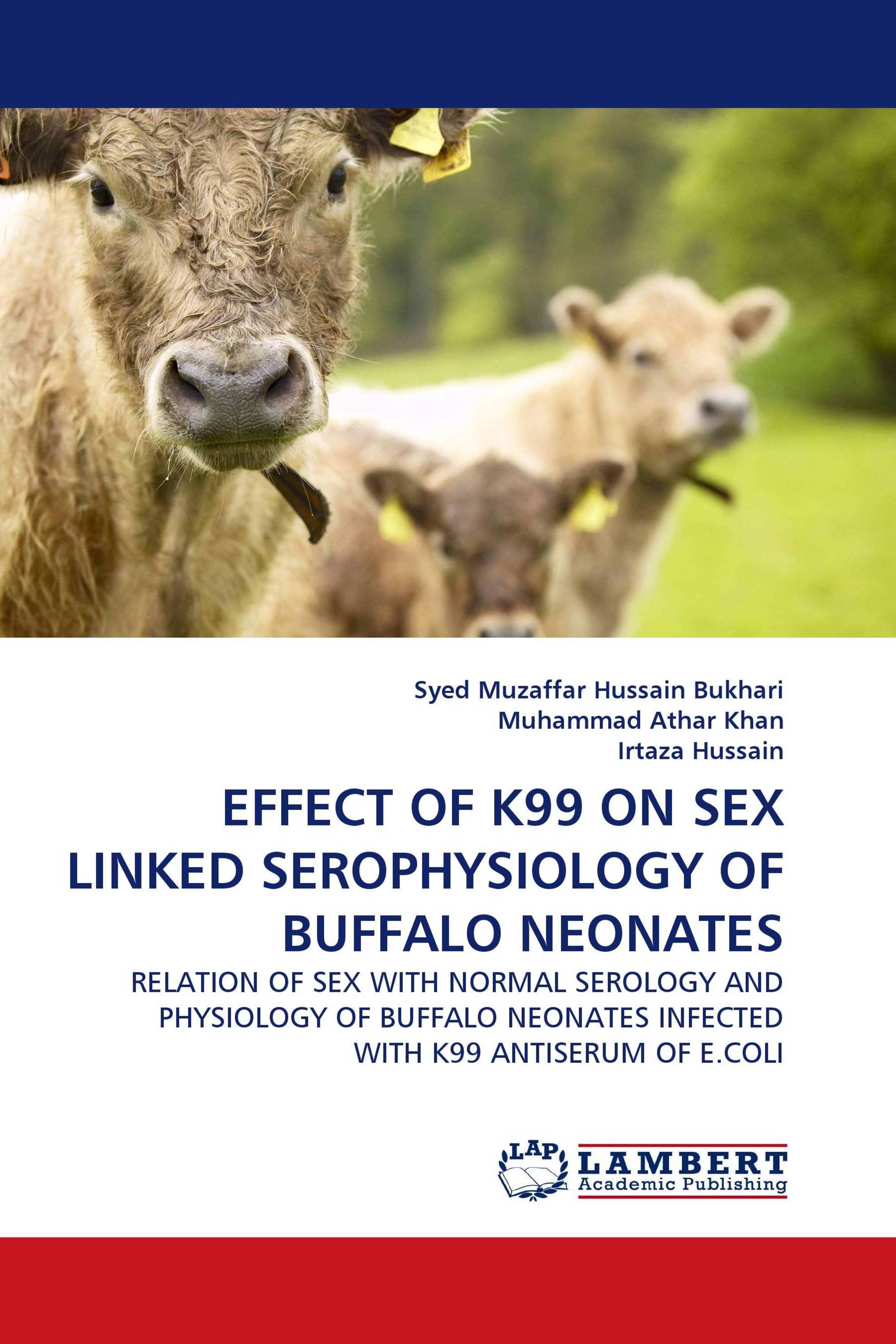EFFECT OF K99 ON SEX LINKED SEROPHYSIOLOGY OF BUFFALO NEONATES
RELATION OF SEX WITH NORMAL SEROLOGY AND PHYSIOLOGY OF BUFFALO NEONATES INFECTED WITH K99 ANTISERUM OF E.COLI
LAP Lambert Academic Publishing ( 2010-11-18 )
€ 49,00
It has been estimated that 75% of early calf mortality in dairy herds is caused by acute diarrhea in pre weaning period as the calves are born agammaglobunic so the danger of infection is increased in the calves Among the infectious agents no more potent pathogen is known than a virulent form coliform organism. Diarrhea due to K99 antiserum of E. coli is seen in calves <3-5 days old. Verotoxic E. coli associated with human diseases can also be isolated from the feces of healthy cattle and buffalo. The pilus antigen K99 is responsible for adhesion of the bacterium to intestinal cells which is estimated for them to be pathogenic. K99 antiserum produces enterotoxins that cause fluid and electrolyte to be secreted into intestinal lumen which results in diarrhoea, dehydration and acidosis (Cynthia, 2005). When there is dehydration there is negative fluid balance, circulating blood volume decreased, so the tissue fluid. Hence physiological phenomenon lowers in dairhoeic calves.
Book Details: |
|
|
ISBN-13: |
978-3-8433-6764-6 |
|
ISBN-10: |
3843367647 |
|
EAN: |
9783843367646 |
|
Book language: |
English |
|
By (author) : |
Syed Muzaffar Hussain Bukhari |
|
Number of pages: |
52 |
|
Published on: |
2010-11-18 |
|
Category: |
Clinical disciplines |




